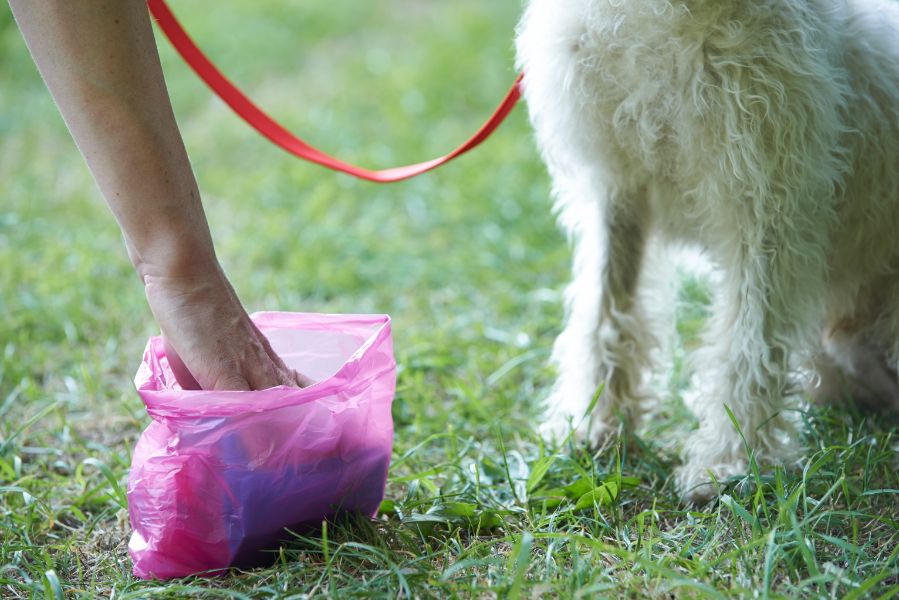
You’ve encountered it. You are out at the park with your pet and look over to see someone’s dog “doing their business”. Just as soon as he’s done, the dog and owner quickly trot off, leaving the grossness where it was deposited.
People not picking up after their pet is a serious problem. Not only is it rude and causes stink and the risk of people stepping on it, but pet waste also carries disease and attracts flies and other parasites.
Picking up your pet’s waste is a part of being a responsible dog owner. The team at Shiloh Veterinary Hospital is here to explain why this unfortunate doody duty benefits your pet, you, and the entire community.
The Trouble with Dog Waste
According to an article in Live Science, dogs produce over 10 million tons of poop each year. That is a disturbing amount of fecal matter, right? Most of this ends up in landfills, as well as on our lawns, in parks, and in natural waterways.
Some pet owners shrug their shoulders and consider their dog’s waste organic or natural. Unfortunately, while waste disintegrates, there is nothing natural about it. So, what’s the trouble with leaving dog waste behind?
- Waste can transmit diseases to humans and animals. Many contagious illnesses like parvovirus are carried in a pet’s poop. Sometimes these organisms can live in waste for more than a few days. If a pet comes into contact with it, or if we do, then we are at risk of an illness. A few illnesses that can be carried through poop include Leptospira, E. coli, and Salmonella.
- It is smelly. If you have ever walked through a park where there is a lot of dog waste, you know that it can be stinky. This odor attracts flies and parasites that also carry disease. Multiple flies can be a nuisance when you are out trying to enjoy the day with your fur friend.
- It contaminates water. Your pet’s poop can cause problems for natural water sources, contaminating the area and encouraging bacteria, such as giardia. Creeks, springs, and other forms of natural free-flowing water need to be protected for the ecological health of the region, as well as our own health and well-being.
- It’s messy. As anyone who has inadvertently stepped in dog poo can attest, it’s inconvenient and gross. No one wants to be out enjoying the great outdoors, only to have a mishap with someone else’s dog feces. It’s also just generally unattractive.
- It destroys lawns. Dog fecal matter contains contaminants that destroy grass and other plants.
- It carries intestinal parasites. Hookworm, roundworm, tapeworms, and other intestinal parasites are commonly transmitted through contact with pet waste.
Tips to Dispose of Your Pet’s Waste
Since there are several problems associated with leaving your pet’s waste on the ground, we can all agree that disposing of these can help humans, animals, and the environment. Here are a few tips to make picking up your pet’s waste a snap.
- Carry lots of biodegradable waste bags with you when you walk with your pup.
- Supervise your pet while you are out and discourage them from eating or sniffing pet waste.
- Throw away the pet waste in the bags in a trash can or other receptacle (don’t flush it in the toilet as this can contaminate public water).
- Consider installing a composting system in the yard for your pet’s waste (do not, however, use your own compost).
- Talk to your neighbors about installing a pet waste station or two in shared spaces and walkways.
Picking up your pet’s waste doesn’t have to be something to be thrilled about, but it definitely is something every dog owner must do. By keeping pet waste out of sight, we reduce the spread of illnesses, smells, unsightly green spaces, and more. For more information, or to schedule an appointment, please call us. And, thank you for scooping!
